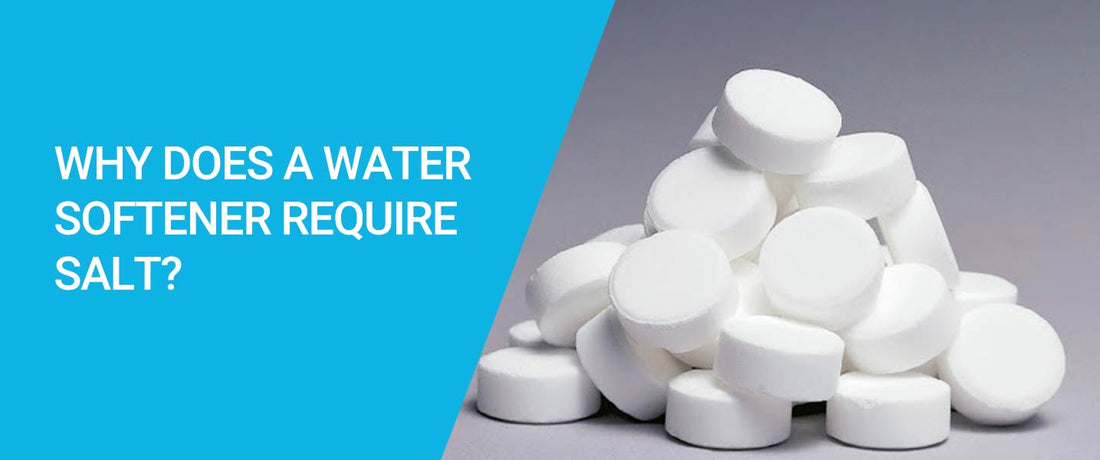A
water softener solves problems caused by hard water in the home. Homeowners, who already have a
water softener installed in their homes and people looking to get it installed often ask us why do they need to add salt? Before investing in a water softening solution, it is worthwhile to spend some time understanding how a water softener works and what role does salt play in this process. There are two broad categories of systems that are used to soften water: ion-exchange systems and salt-free systems. Ion-exchange systems are the more common of the two and use salt to soften water.
What is Ion-Exchange Process?
Most whole-house water softeners use a process known as ion-exchange to remove the mineral content from hard water. These systems offer an effective way to reduce the mineral content of water without using physical filtration methods like reverse-osmosis, which makes them ideal for providing large amounts of soft water. Ion-exchange water softeners usually have two tanks.
- Resin Tank: Contains resin beads
- Brine Tank: Contains salt solution
The exchange takes place by passing hard water over resin which consists of tiny plastic beads, all of which are negatively charged. The minerals contained in hard water (Calcium & Magnesium) are positively charged. When hard water passes over the resin beads, the minerals contained in the water are attracted towards the resin beads. The water leaving the system is soft and the hard minerals which were in the water are left behind on the resin beads.
Regeneration Keeps water softener Working
Eventually, all of the resin exchange sites are occupied by calcium and magnesium and no further softening exchange can take place. The resin is said to be exhausted and must be regenerated. This is where the second tank with brine solutions comes into play. During your water softener’s regeneration cycle/ backwash cycle, which often happens while you sleep, salty water from the brine tank runs through the media tank. Salt is a compound of sodium chloride (NaCl)— the sodium ion is positive, and the chloride is negative, and those elements combined to that have bonded together. So, during the backwash cycle, sodium breaks away from the chloride and attaches to the negatively-charged resin containing hardness causing mineral ions. When that happens, the calcium and magnesium molecules get kicked off the resin and flushed out of the system. This leaves the media recharged and the system is ready to begin the softening process again. In simple words, think of a brine tank a fuel tank of your car. If there’s no fuel in its tank, the water softener won’t run. Once all the salt runs out, the water softener will attempt to recharge the resin using raw hard water instead of salt solutions. As a result, hard water will bypass the softening media making its way into your home until the resin can be cleaned again.
Buy High Quality Water Softening Salt
Salt is essential to keep your water softener running smoothly and supplying your home with softened water 24 hours a day. To keep it running efficiently and performing to its best, all you need to do is keep it topped up with salt. We have made it really easy to
buy water softener salt by offering free delivery when you
order it online. You can also call our office at 093 60705 for pickup and collection. We only stock the highest quality Hydrosoft salt which is specifically designed for use in water softeners. Fine cooking or table salt could interfere with the performance of the softener, whilst coarse sea or rock salt may contain impurities. If you need any further information on our CWS Water Softeners, feel free to call us at 093 60705 or contact us.
Request a Callback

